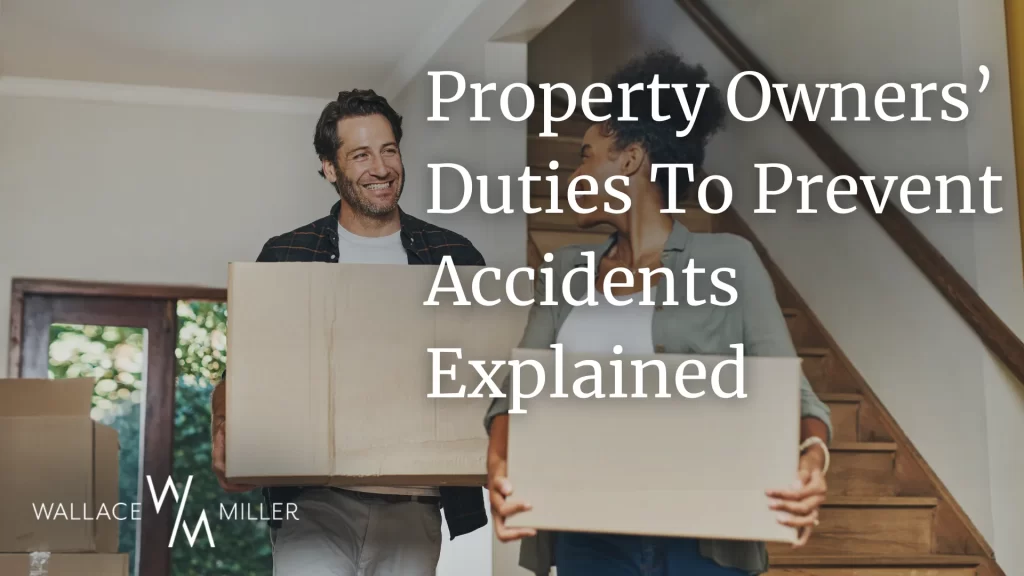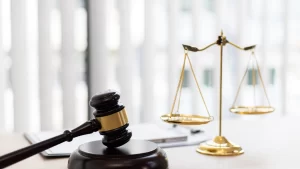Posted on Tuesday, February 20th, 2024 at 8:39 pm

As a property owner, you have a legal responsibility to maintain a safe environment for visitors, guests, and patrons. This obligation, known as a duty of care, requires taking reasonable steps to identify and address potential hazards that could lead to accidents and injuries. Failing to fulfill this duty can result in serious consequences, including legal liability for any harm that occurs on your premises.
Legal Duties of Property Owners
In Illinois, property owners owe different levels of care depending on the visitor’s status:
- Invitees: Individuals who enter a property for the owner’s financial benefit, such as customers in a store, are owed the highest duty of care. Property owners must regularly inspect the premises for hazards, promptly address any dangerous conditions, and warn invitees of non-obvious risks.
- Licensees: Visitors who enter a property for their own purposes, such as social guests, are owed a slightly lower duty of care. Property owners must address known hazards and warn licensees of non-obvious dangers but are not required to inspect the premises for hidden risks.
- Trespassers: Individuals who enter a property without permission are owed the lowest duty of care. Property owners generally must only refrain from willfully or wantonly injuring trespassers, with some exceptions for children attracted to dangerous conditions (attractive nuisances).
Regardless of the visitor’s status, property owners must exercise reasonable care in maintaining their premises and addressing foreseeable hazards. This duty extends to various aspects of property maintenance, including:
- Repairing or removing physical hazards, such as broken stairs, uneven flooring, or unstable structures.
- Ensuring adequate lighting and security measures to prevent accidents and criminal activity.
- Implementing and enforcing safety policies and procedures, particularly in commercial settings.
- Providing appropriate warnings or barriers for known hazards that cannot be immediately addressed.
By understanding and fulfilling these legal duties, property owners can create safer environments and minimize the risk of accidents and injuries on their premises.
Preventing Accidents on Property
To meet their legal obligations and prevent accidents, property owners should take proactive steps to identify and mitigate potential hazards. Some key strategies include:
- Regular inspections: Conducting thorough, periodic inspections of the property to identify any developing hazards or maintenance issues.
- Prompt repairs: Addressing identified hazards and making necessary repairs in a timely manner to prevent accidents.
- Adequate maintenance: Implementing a comprehensive maintenance plan to keep the property in a safe, well-maintained condition.
- Clear warnings: Placing clear, visible warnings or barriers around known hazards that cannot be immediately addressed to alert visitors of the risk.
- Staff training: Providing thorough safety training to employees and establishing clear protocols for reporting and addressing hazards.
- Visitor education: Informing visitors of any specific safety rules or precautions they should follow while on the property.
- Proper documentation: Maintaining detailed records of inspections, maintenance, and repairs to demonstrate a commitment to safety and support a defense against potential legal claims.
By implementing these accident prevention strategies, property owners can significantly reduce the risk of injuries on their premises and demonstrate their commitment to visitor safety.
Claims Against Property Owners for Negligence
When a property owner fails to fulfill their legal duties, and someone is injured as a result, the victim may have grounds for a premises liability claim. To succeed in such a claim, the injured party typically must prove that:
- The property owner owed them a duty of care based on their status as an invitee, licensee, or trespasser.
- The property owner breached that duty by failing to maintain safe premises or warn of hazards.
- The breach of duty directly caused the victim’s accident and resulting injuries.
- The victim suffered actual damages, such as medical expenses, lost wages, or pain and suffering.
If these elements are established, the property owner may be held liable for the victim’s damages, and the victim may be entitled to compensation through an insurance claim or personal injury lawsuit.
Duty of Care Laws
 In Illinois, the Premises Liability Act (740 ILCS 130) governs many aspects of property owner liability and codifies the common law principles of duty of care. The Act outlines the specific duties owed to invitees, licensees, and trespassers, as well as exceptions and limitations on liability in certain circumstances.
In Illinois, the Premises Liability Act (740 ILCS 130) governs many aspects of property owner liability and codifies the common law principles of duty of care. The Act outlines the specific duties owed to invitees, licensees, and trespassers, as well as exceptions and limitations on liability in certain circumstances.
It’s essential for property owners to familiarize themselves with the Premises Liability Act and consult with an experienced attorney to ensure compliance with their legal obligations and minimize the risk of liability in the event of an accident.
How Our Firm Can Help
As a property owner, understanding and fulfilling your legal duties to prevent accidents is crucial for creating a safe environment and avoiding potential liability. By conducting regular inspections, promptly addressing hazards, and implementing effective safety measures, you can demonstrate your commitment to visitor well-being and protect yourself from legal claims.
If you’re a property owner facing a premises liability claim or an individual who has been injured due to a property owner’s negligence, the experienced attorneys at Wallace Miller can help. Contact us at (312) 261-6193 for a free consultation, and let us put our knowledge and resources to work for you.
